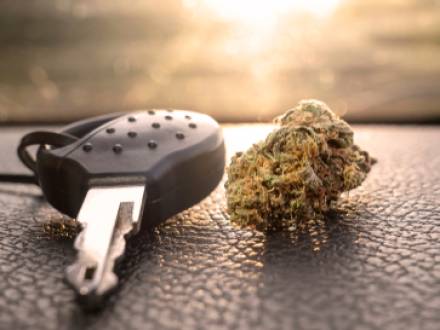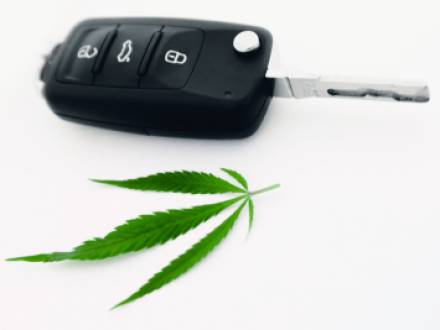Recent Blog Posts
Can Immigrants Face Criminal Charges for Failing to Register?
 Since taking office for his second term, President Donald Trump has made immigration one of the primary areas of focus for his administration. He has pledged to deport millions of undocumented immigrants, and as part of this effort, the administration has implemented a new rule requiring immigrants to register with the government. Failure to register as required or failure to carry proof of registration may not only result in immigration concerns such as deportation, but immigrants could face criminal charges.
Since taking office for his second term, President Donald Trump has made immigration one of the primary areas of focus for his administration. He has pledged to deport millions of undocumented immigrants, and as part of this effort, the administration has implemented a new rule requiring immigrants to register with the government. Failure to register as required or failure to carry proof of registration may not only result in immigration concerns such as deportation, but immigrants could face criminal charges.
Undocumented immigrants or others who are concerned about the consequences they may face when interacting with immigration officials will need to understand their rights and the steps they can take to address registration requirements or criminal charges. People in these situations can benefit by working with a Hartford, Connecticut criminal defense attorney who has a strong understanding of the ways criminal law intersects with immigration law.
Can Immigrants Face Criminal Charges for Failing to Register?
 Since taking office for his second term, President Donald Trump has made immigration one of the primary areas of focus for his administration. He has pledged to deport millions of undocumented immigrants, and as part of this effort, the administration has implemented a new rule requiring immigrants to register with the government. Failure to register as required or failure to carry proof of registration may not only result in immigration concerns such as deportation, but immigrants could face criminal charges.
Since taking office for his second term, President Donald Trump has made immigration one of the primary areas of focus for his administration. He has pledged to deport millions of undocumented immigrants, and as part of this effort, the administration has implemented a new rule requiring immigrants to register with the government. Failure to register as required or failure to carry proof of registration may not only result in immigration concerns such as deportation, but immigrants could face criminal charges.
Undocumented immigrants or others who are concerned about the consequences they may face when interacting with immigration officials will need to understand their rights and the steps they can take to address registration requirements or criminal charges. People in these situations can benefit by working with a Hartford, Connecticut criminal defense attorney who has a strong understanding of the ways criminal law intersects with immigration law.
New Connecticut Law May Allow for More Marijuana DUI Arrests
 People may be arrested for driving under the influence (DUI) based on claims that they are intoxicated by alcohol, marijuana, or other substances. Driving under the influence of marijuana is an issue that has received more attention in recent years due to the legalization of cannabis in multiple states, including Connecticut. Law enforcement officials are looking to prevent intoxicated driving, and as part of these efforts, they are asking Connecticut lawmakers to pass a new law that may allow them to stop and arrest more people who are suspected of marijuana-related DUI.
People may be arrested for driving under the influence (DUI) based on claims that they are intoxicated by alcohol, marijuana, or other substances. Driving under the influence of marijuana is an issue that has received more attention in recent years due to the legalization of cannabis in multiple states, including Connecticut. Law enforcement officials are looking to prevent intoxicated driving, and as part of these efforts, they are asking Connecticut lawmakers to pass a new law that may allow them to stop and arrest more people who are suspected of marijuana-related DUI.
Even though marijuana use is now legal for adults in Connecticut, there are a variety of situations where people may face criminal charges related to the use of cannabis. Those who are charged with DUI or other offenses can work with an experienced criminal defense attorney to address these charges and defend against a conviction.
Connecticut Law May Provide Additional Protections for Immigrants
 Throughout the United States, many immigrants are currently concerned about the possibility of deportation. President Donald Trump has pledged to deport millions of illegal or undocumented immigrants, and his administration has been conducting raids, detaining people, and removing them from the U.S. Some states, including Connecticut, have taken steps to respond to these actions and help protect immigrants from unfair and illegal treatment. The Connecticut legislature is currently considering an update to the Trust Act that would expand the protections available to immigrants and limit cooperation between law enforcement and federal immigration officials.
Throughout the United States, many immigrants are currently concerned about the possibility of deportation. President Donald Trump has pledged to deport millions of illegal or undocumented immigrants, and his administration has been conducting raids, detaining people, and removing them from the U.S. Some states, including Connecticut, have taken steps to respond to these actions and help protect immigrants from unfair and illegal treatment. The Connecticut legislature is currently considering an update to the Trust Act that would expand the protections available to immigrants and limit cooperation between law enforcement and federal immigration officials.
The current Trust Act and the proposed changes may affect immigrants who are arrested or charged with crimes. In these situations, immigrants will need to understand their best options for defending against criminal charges and the ways their cases may affect their immigration status. An attorney who understands how criminal law interacts with immigration law can provide crucial support and legal representation to help immigrants protect their rights.
What Steps Are Followed in Deportation Cases?
 The administration of President Donald Trump is seeking to crack down on illegal immigrants. This was a key issue in the 2024 presidential campaign, and since assuming office for his second term in January 2025, President Trump has directed Immigration and Customs Enforcement (ICE) to detain and deport illegal or undocumented immigrants. However, the deportation process can be complex, and understanding the steps followed in these cases can sometimes be difficult.
The administration of President Donald Trump is seeking to crack down on illegal immigrants. This was a key issue in the 2024 presidential campaign, and since assuming office for his second term in January 2025, President Trump has directed Immigration and Customs Enforcement (ICE) to detain and deport illegal or undocumented immigrants. However, the deportation process can be complex, and understanding the steps followed in these cases can sometimes be difficult.
Many deportation cases are related to criminal charges against immigrants, and people who are arrested by local or state police could find that their immigration status is at risk. Because of the concerns faced by immigrants who become involved in the criminal justice system, it is important to work with an attorney who can help defend against criminal charges and provide guidance on the ways a criminal case may affect a person’s immigration status.
Supreme Court May Address Issue of Whether Teenagers Can Possess Firearms
 Firearm rights are an ongoing issue in the United States. While the Second Amendment provides Americans with the right to bear arms, there are many concerns about how the proliferation of guns may affect public safety. Due to the large number of school shootings that have taken place over the past couple of decades, some states have passed laws restricting minors from owning or possessing firearms. However, these laws may be called into question as the Supreme Court rules on whether they are constitutional.
Firearm rights are an ongoing issue in the United States. While the Second Amendment provides Americans with the right to bear arms, there are many concerns about how the proliferation of guns may affect public safety. Due to the large number of school shootings that have taken place over the past couple of decades, some states have passed laws restricting minors from owning or possessing firearms. However, these laws may be called into question as the Supreme Court rules on whether they are constitutional.
As the laws related to firearms change, minors or adults may need to determine what steps to take if they are arrested and charged with weapons offenses. An attorney with a strong understanding of the applicable laws and experience in criminal defense can provide legal guidance and representation in these cases, working to resolve weapons charges while protecting a person’s rights.
Can Overdose Deaths Lead to Criminal Charges in Connecticut?
 Due to the ongoing opioid epidemic, government officials are more concerned than ever with the rate of deaths caused by drug overdoses. Because of the potential risks that certain drugs can present, people who are charged with drug crimes involving the distribution of controlled substances are likely to face severe penalties if they are convicted. However, the charges may become even more serious if a person is accused of providing someone with drugs that led to an overdose death.
Due to the ongoing opioid epidemic, government officials are more concerned than ever with the rate of deaths caused by drug overdoses. Because of the potential risks that certain drugs can present, people who are charged with drug crimes involving the distribution of controlled substances are likely to face severe penalties if they are convicted. However, the charges may become even more serious if a person is accused of providing someone with drugs that led to an overdose death.
Understanding the specific charges and penalties that may apply in these situations can be difficult, and those accused of drug distribution and related crimes will need to understand the steps they can take to minimize their potential penalties. A qualified Hartford, CT criminal defense attorney who has experience handling these types of charges can provide a strong defense, working to ensure that a defendant is treated fairly while fighting to protect their rights.
New Law May Make DUI a Deportable Offense
 Since President Donald Trump assumed office for his second term, one of his primary focuses has been to crack down on illegal immigration. The Trump administration has taken steps to detain and deport undocumented immigrants, and it has also taken action against people who entered the United States legally or had valid Green Cards. Lawmakers are joining in this effort by attempting to pass laws that will allow for the deportation of more immigrants, including a potential new law that could make people convicted of DUI inadmissible and deportable.
Since President Donald Trump assumed office for his second term, one of his primary focuses has been to crack down on illegal immigration. The Trump administration has taken steps to detain and deport undocumented immigrants, and it has also taken action against people who entered the United States legally or had valid Green Cards. Lawmakers are joining in this effort by attempting to pass laws that will allow for the deportation of more immigrants, including a potential new law that could make people convicted of DUI inadmissible and deportable.
This new law will make it more important than ever for immigrants who are charged with DUI to receive legal representation and defend against convictions. A skilled and experienced Connecticut criminal defense attorney can provide guidance on the best ways to address these charges and prevent issues that could lead to deportation.
Can Police Officers Test for Marijuana in DUI Cases?
 Marijuana use is on the rise throughout the United States, with multiple states, including Connecticut, having legalized the drug for recreational use. This has raised concerns about roadway safety, since driving while under the influence of marijuana can be just as dangerous as driving while under the influence of alcohol. While police may be on the lookout for people who drive while high, determining whether a person is intoxicated and can be charged with DUI is often easier said than done.
Marijuana use is on the rise throughout the United States, with multiple states, including Connecticut, having legalized the drug for recreational use. This has raised concerns about roadway safety, since driving while under the influence of marijuana can be just as dangerous as driving while under the influence of alcohol. While police may be on the lookout for people who drive while high, determining whether a person is intoxicated and can be charged with DUI is often easier said than done.
As police take steps to address marijuana intoxication, more people may be arrested for DUI. Fortunately, there are defenses available in these situations, and people who are charged with marijuana DUI may be able to challenge the evidence against them and avoid convictions. In these situations, it is important to work with an East Hartford, CT criminal defense attorney who understands police procedures, testing reliability, and ideal defense strategies.
Connecticut Considers New DUI and Distracted Driving Laws
 Roadway safety is an ongoing concern in Connecticut. According to the Connecticut Department of Transportation, there were nearly 95,000 car accidents in the state in 2024, and 328 people were killed in these accidents. Law enforcement officials and legislators are looking to reduce these numbers, and to do so, several new laws have been proposed that will address issues such as drunk driving, distracted driving, and other unsafe behaviors.
Roadway safety is an ongoing concern in Connecticut. According to the Connecticut Department of Transportation, there were nearly 95,000 car accidents in the state in 2024, and 328 people were killed in these accidents. Law enforcement officials and legislators are looking to reduce these numbers, and to do so, several new laws have been proposed that will address issues such as drunk driving, distracted driving, and other unsafe behaviors.
Because of the ways law enforcement is cracking down on drivers who are accused of violating traffic laws, people who have been charged with serious violations will need to understand their options for defense. Representation from an experienced Connecticut criminal defense attorney can be essential in these situations, ensuring that steps can be taken to minimize fines or other penalties.






